Democrats take first steps of 50-state strategy
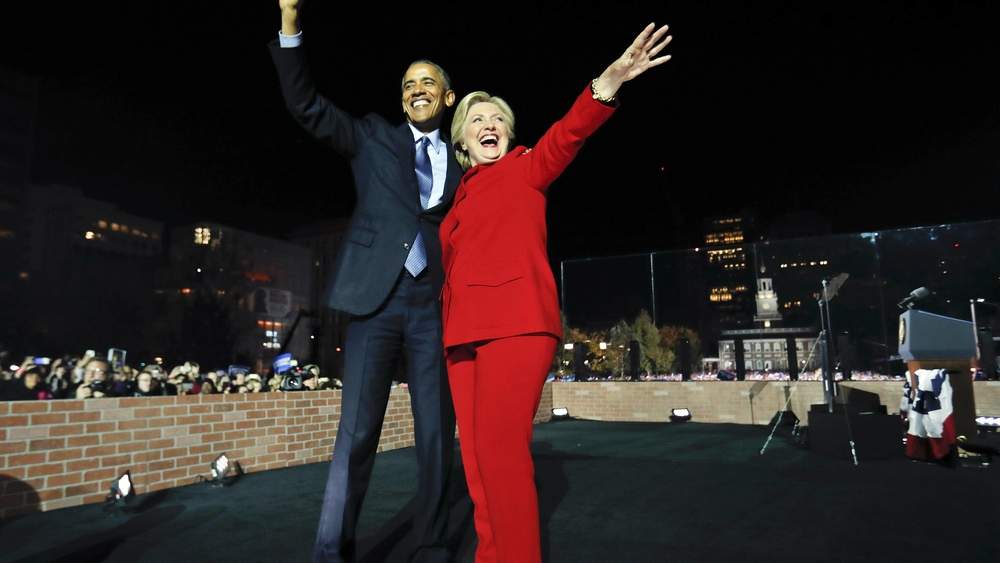
National Democrats are taking the first, modest steps toward their promised 50-state strategy, lending help to state and local parties as they try to harness opposition to President Donald Trump and the Republican monopoly in Washington. Dubbing the effort “Resistance Summer,” the Democratic National Committee plans to distribute about $1 million – with promises of more later – through a matching grant program for local Democrats to organize voters. It’s the party’s first concrete expansion plan since Tom Perez took over as chairman, and party leaders bill it as a recognition they must do more to get actual votes out of the anti-Trump groundswell. The amount is a fraction of the billions spent nationwide each election cycle and shows what the party is up against alongside liberal grassroots organizations and even a new political organization, Onward Together, by 2016 Democratic presidential nominee Hillary Clinton. Minnesota Rep. Keith Ellison, Perez’s opponent for chair and now his top deputy, said the intent is to help local Democrats manage everything from rallies, town halls and neighborhood meetings to registration drives and voter database improvements. “We’re asking them to engage neighbors not just in this whole mess about Trump … but on what kind of vision we have for our country,” Ellison said, adding that he and Perez are talking regularly to many of the independent groups on the left. Initial recipients include Arizona, Massachusetts, Michigan, Kansas and South Dakota. Those states span the spectrum of Democratic fortunes: Massachusetts is a liberal bastion; Michigan is a presidential battleground; Arizona is nearing swing-state status; Kansas and South Dakota are Republican strongholds. Nationally, Democrats face a power deficit they’ve not seen in nine decades. Republicans control the White House and Congress, hold 33 governorships and run about two-thirds of state legislatures. Michigan Democratic Chairman Brandon Dillon said he’d use the national money to help pay the six new field organizers he’s hired since November, when Clinton lost to Trump by fewer than 11,000 out of more than 4.5 million votes. Those workers are updating individual voter information the party gives its candidates. “Our voter file isn’t as good as it should be, and we haven’t been doing the kind of organizing we should,” Dillon said. In Republican-run Kansas, Chairman John Gibson has only one organizer based outside the capital. His goal is hiring one for each of the state’s four congressional districts, including a Wichita-based district where Democrats just lost a surprisingly close special House election. “It’s up to Democratic candidates to make that argument” for “a better way of governing,” Gibson said, “but it’s the job of the party to build the infrastructure candidates can use to win campaigns.” Republished with permission of The Associated Press.
Donald Trump adviser: Secret warrant may have caught hacker contact
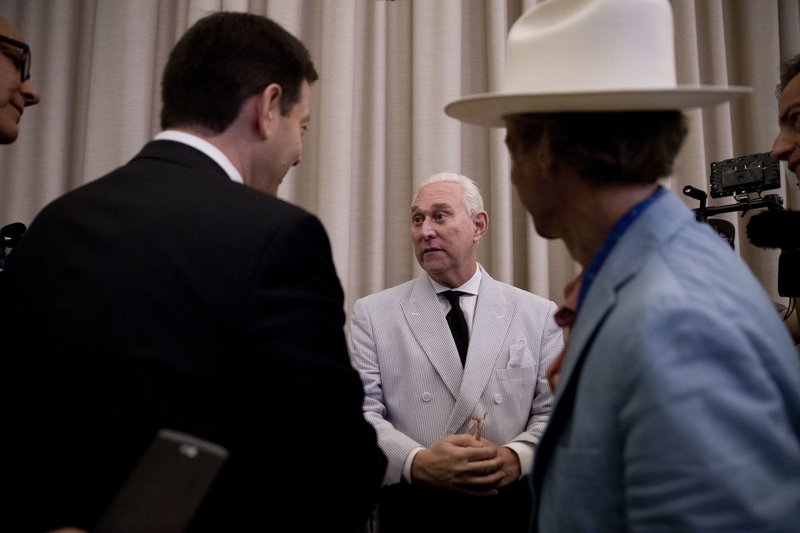
Longtime Trump adviser Roger Stone says he believes his contacts with a Russian-linked hacker who took credit for breaching the Democratic National Committee may have been obtained through a FISA warrant, which allows the government to collect the communications of individuals suspected of being agents of a foreign power. Stone is among a handful of President Donald Trump‘s associates who are under scrutiny for possible links to Russia during the presidential race. In a statement to The Associated Press, Stone said he’s retained two attorneys to explore whether he can compel the government to “either charge me or admit they have no case whatsoever.” The Republican operative has acknowledged having a Twitter exchange with Guccifer 2.0, a hacker that U.S. officials believe has ties to Russia. Stone said he was “unaware at the time of the brief exchange of allegations that the hacker in question is suspected of being a Russian asset.” “I have no relationship with the Russian state, Russian Intelligence or any other Russians,” said Stone, who split with Trump’s campaign in August 2015 but remains in touch with the president. Stone’s messages with Guccifer 2.0 were first reported by the website The Smoking Gun. He said the story contains information that “could only be learned by surveillance of my domain and eavesdropping on my e-mail, phone calls and texts.” “If these where obtained through a FISA warrant as I believe and the information was leaked to the Smoking Gun, that would constitute a felony,” Stone said. He also suggested, without evidence, the government had Trump under surveillance during the presidential campaign. Trump has accused former President Barack Obama of wiretapping the New York skyscraper where he lived and ran his campaign, though he has provided no evidence to support his explosive allegation. On Monday, the White House started softening Trump’s claims, with spokesman Sean Spicer saying the president was referring to general surveillance that may have been approved by the Obama administration. The FBI, as well as House and Senate committees, are investigating Russia’s interference in the 2016 election and possible contacts between Trump associates and Russians. Trump has asked the congressional committees also to investigate his wiretapping allegations, though the Justice Department missed a Monday deadline to provide evidence to the House committee. Sen. Lindsey Graham, R-S.C., says he’s waiting to hear from FBI Director James Comey whether a warrant was issued that would have allowed the Obama administration to tap Trump’s phones during the campaign. Graham says he asked Comey to answer by Wednesday and also to say whether the FBI is investigating Russian interference in the 2016 campaign. If Comey doesn’t comply, Graham says Congress “is going to flex its muscle.” “We’ll issue a subpoena to get the information, we’ll hold up the deputy attorney general’s nomination until Congress is provided with the information to finally clear the air as to whether there was ever a warrant issued against the Trump campaign,” Graham, who heads the Judiciary Committee’s crime and terrorism subcommittee, said Wednesday on NBC’s “Today” show. Republican Sen. John McCain has singled out Stone as a Trump associate who should answer questions about his ties to Russia. The Arizona lawmaker suggested in an interview Sunday with CNN that Stone may have ties to ousted Ukrainian President Viktor Yanukovych. Stone denied any connection to Yanukovych or his political party. Stone said he did work for a “small pro-Western splinter party” of Ukrainian politician Volydmyr Litwin, calling the effort to help win seats in parliament a “low budget operation.” Stone said he is willing to testify in any Senate hearings that occur “in public and not behind closed doors.” He’s retained former U.S. Attorney Kendall Coffey and South Florida lawyer Grant Smith to represent him. Last year, Coffey represented Trump campaign manager Corey Lewandowski when he was charged with simple battery after an altercation with a female reporter. The prosecutor later dropped the charges. Republished with permission of The Associated Press.
Tea Party parallel? Liberals taking aim at their own party
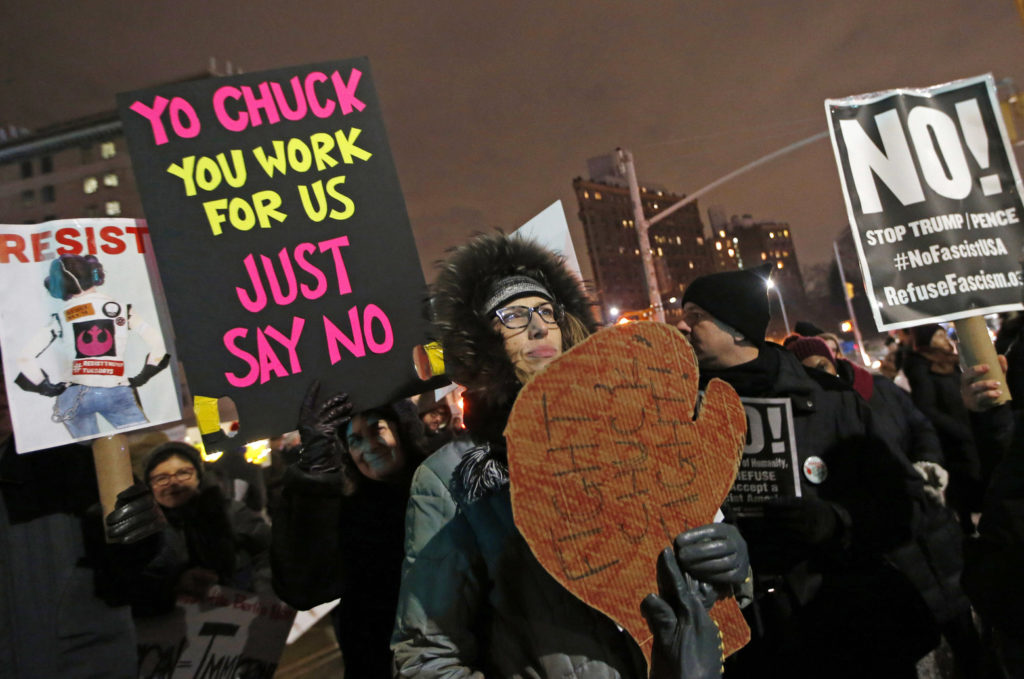
Four days after Donald Trump‘s surprising White House victory, the liberal organization CREDO Action fired off a frantic warning to its 4.6 million anxious supporters. Their worry wasn’t the new president. It was his opposition. “Democratic leaders have been welcoming Trump,” the email said. “That’s not acceptable. Democratic leaders need to stand up and fight. Now.” Amid a national surge of anti-Trump protests, boycotts and actions, liberals have begun taking aim at a different target: Their own party. Over the past few weeks, activists have formed a number of organizations threatening a primary challenge to Democratic lawmakers who offer anything less than complete resistance to the Republican president. “We’re not interested in unity,” said Cenk Uygur, the founder of Justice Democrats, a new organization that’s pledged to replace “every establishment politician” in Congress. “We can’t beat the Republicans unless we have good, honest, uncorrupted candidates.” While party leaders have urged Democrats to keep their attacks focused on Trump, the liberal grass roots sees the fresh wave of opposition energy as an opportunity to push their party to the left and wrest power from longtime party stalwarts. The intraparty pressure is reminiscent of the tea party movement, where conservative activists defeated several centrist Republican incumbents. Their efforts reverberated through the 2012 and 2016 presidential elections, forcing candidates to the right on economic issues. Like Uygur, many founders of the new groups are supporters of Sen. Bernie Sanders‘ presidential campaign, eager to continue their effort to remake the Democratic Party. Uygur’s group says they’ve already found 70 possible candidates who will refuse corporate campaign donations while running for Congress— challenging elected Democrats if needed. Those people are now going through candidate training. Democratic officials from more conservative states worry that those primary contests will result in the party holding even less power in Washington. Sen. Joe Manchin, a West Virginia Democrat likely to face a tough re-election fight in a state won overwhelmingly by Trump, said the effort will make Democrats a “super minority” in the Senate. A coalition named “WeWillReplaceYou” is urging Senate Democratic leader Chuck Schumer of New York to remove Manchin from his new role in the party leadership after Manchin expressed openness to working with Trump. “If you want to go ahead and beat me up in a primary then go ahead,” Manchin said. “All it does is take the resources from the general.” Even without primaries, the party faces a challenging political map in 2018. Republicans will be defending just eight Senate seats, while Democrats must hold 23 — plus two filled by independents who caucus with them. Ten of those races are in states Trump carried November. The activists say they’re willing to trade power for conviction. “I’d rather have 44 or 45 awesome Democrats who are lockstep together than 44 or 45 really awesome Democrats and three to four weak-kneed individuals who are going to dilute the party,” said Murshed Zaheed, CREDO’s political director. They point to a postelection shift among Democrats as a sign that their efforts are working. Initially, Schumer and even liberals such as Sanders and Massachusetts Sen. Elizabeth Warren cautiously spoke of working with Trump on certain issues. After the wave of liberal fury, most Democrats have shifted into full opposition mode. “Democrats have a reflexive instinct to compromise,” said Ben Wikler of MoveOn.org, which has directed its members to protest at Democratic as well as Republican congressional offices. “At this moment of successive Trump crises, resistance rather than compromise is what the country needs.” Democratic leaders say the path to victory next year depends on a strong economic message, one that casts Trump as betraying the working-class voters who boosted him to victory. “What we have in common, whether you’re West Virginia or Massachusetts or Kansas is a commitment to economic opportunity,” said Tom Perez, the newly elected Democratic National Committee chairman. A memo this past week from Priorities USA gave Democrats a “10-point checklist” for criticizing Trump’s economic policies and conflicts of interest, saying the party cannot simply count on the president to remain “his own worst enemy.” Many of the most vulnerable Democratic senators avoided town halls meetings during the congressional recess last week, hoping to evade politically damaging confrontations. Party officials are trying to channel the new energy into more targeted electoral efforts. In the weeks after Election Day, the Ohio Democratic Party held a series of meetings across the state with new activists. Since then, they’ve teamed up with some organizations for events. “Our goal is to build good relationships so that come spring, summer of ’18 everyone moves to an election mindset,” said David Pepper, the state party chairman. Last month, the Democratic Congressional Campaign Committee installed full-time organizers in 20 swing districts, with the goal of building stronger connections with activist groups. Their message: “We can’t add by subtracting,” said the committee chairman, Rep. Ben Ray Luján of New Mexico. That may be a hard sell for some of the new anti-Trump organizations. “Something the tea party was really smart about early on was not giving a big bear hug to the Republican National Committee,” said Ezra Levin, the executive director of the new anti-Trump group Indivisible. “Keeping the political parties at arm’s length is crucial to remaining an outside political force.” Republished with permission of The Associated Press.
Out of power, state Dems frustrated with national committee
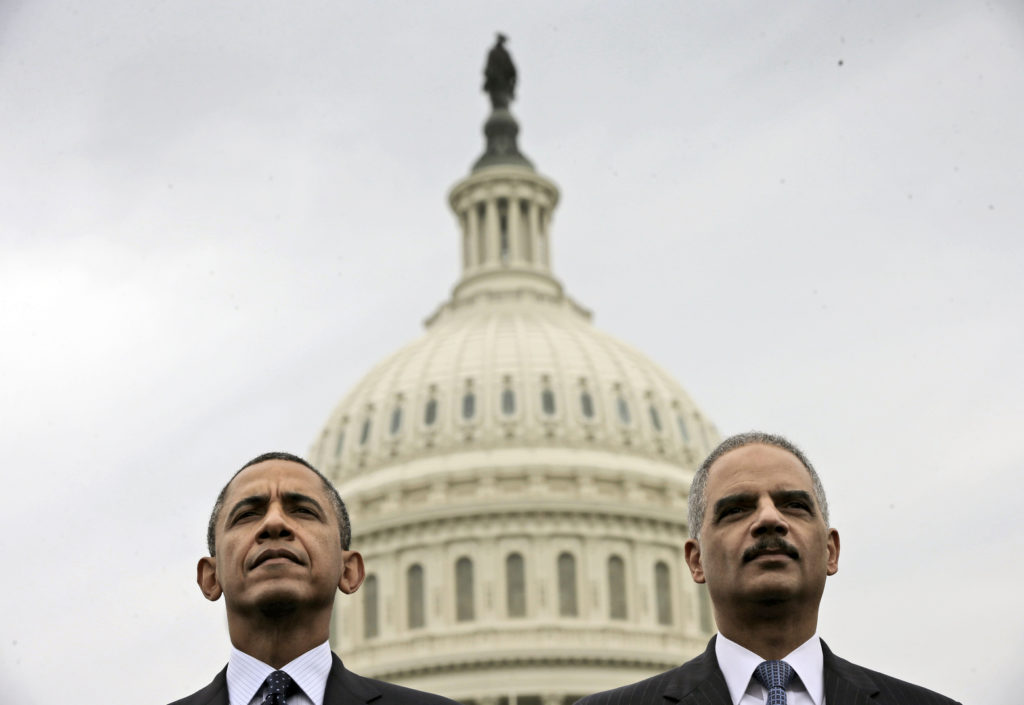
Democrats around the country are demanding change from a national committee they say has focused too heavily on the White House at the expense of governorships, legislatures and state party operations. “It’s got to be helping us organize in our states to be able to build that power at the state legislative level,” Michigan Democratic Party Chair Brandon Dillon said of the Democratic National Committee, currently searching for a new leader. “We’ve lost governorships and state legislatures at a rate that is pretty astounding.” DNC members gather in February to elect a new chairman, with five candidates running so far, each pledging to rebuild from the ground up. Money from the DNC to state parties has been inconsistent during President Barack Obama’s tenure and, in most states, less than it was under former chairman Howard Dean. Party chairs say that’s resulted in fewer staff members and training programs, a change felt particularly in Republican-leaning states. State leaders also say Obama’s grassroots group Organizing for Action has functioned more like competition than a partner. Beginning in 2017, Republicans will hold 33 governorships and fully control legislatures in 25 states, as well as the Congress and presidency. During Obama’s two terms in office, the party lost more than 1,000 seats at the state and national level. “I love President Obama, but he and his administration allowed for the deterioration, the terrible deterioration, of the state parties over the last eight years,” said Mark Brewer, who led the Michigan Democratic Party for 18 years. Obama has announced plans, though, to improve Democrats’ down-ballot fortunes once he leaves office. He is launching an initiative with former Attorney General Eric Holder aimed at making Democratic gains when states redraw legislative district lines following the 2020 census. Democrats have blamed Republican gerrymandering for some of their losses in Congress and state legislatures. State officials say it’s been hard to plan long term and recruit and train candidates in off-election years due to inconsistent funding from the DNC. Under Dean, the national party installed and paid several staff members in each state. But that program ended after Obama’s election. State parties began to receive monthly payments of anywhere from $5,000 to $10,000, an amount that varies depending on the year. At some point, the parties have received no money at all. The DNC does provide some money to state parties for elections based on the state’s competitive races and other factors. The change has left some states scrambling. The Nebraska Democratic Party, for example, paid five full-time staff members during Dean’s tenure. But when Dean’s “50-state strategy” ended, it was hard to keep one and pay the rent, said Maureen Monahan, a vice president of the Association for State Democratic Chairs from Nebraska. Some states, such Mississippi, do not pay their party chairs. Even in Michigan, a staff that once stood at more than a dozen now is between five and seven employees, party chairs said. “The past eight years we have not had any focus on the state parties,” Monahan said. “There’s been a sense that the DNC is a building in Washington.” The push-and-pull between state parties and the DNC is nothing new. State parties, congressional Democratic groups and the president’s allies often spar over how best to spend party resources. The DNC defended its involvement with states. “State parties are the lifeblood of the DNC, and we make investing in all of them a priority because they are an integral part of winning up and down the ballot. State parties were critical to picking up Senate seats, House seats, legislative chambers and governorships in 2016, and their importance will be a key focus for the party as we elect new officers in February,” DNC spokesman Adam Hodge said. Marcel Groen, Pennsylvania Democrats’ chair, said it’s unfair to blame Democrats’ troubles completely on the national party. But he said a focus on recruiting and running Democrats even in low level races in Republicans areas can help the top of the ticket in the long term. “We can’t expect people in rural areas, in red areas, to vote for our presidential candidates or our gubernatorial or Senate candidates if they’ve never seen a Democrat running for school board or county office,” he said. Republished with permission of The Associated Press.
Clinton team sees recount effort as waste of resources
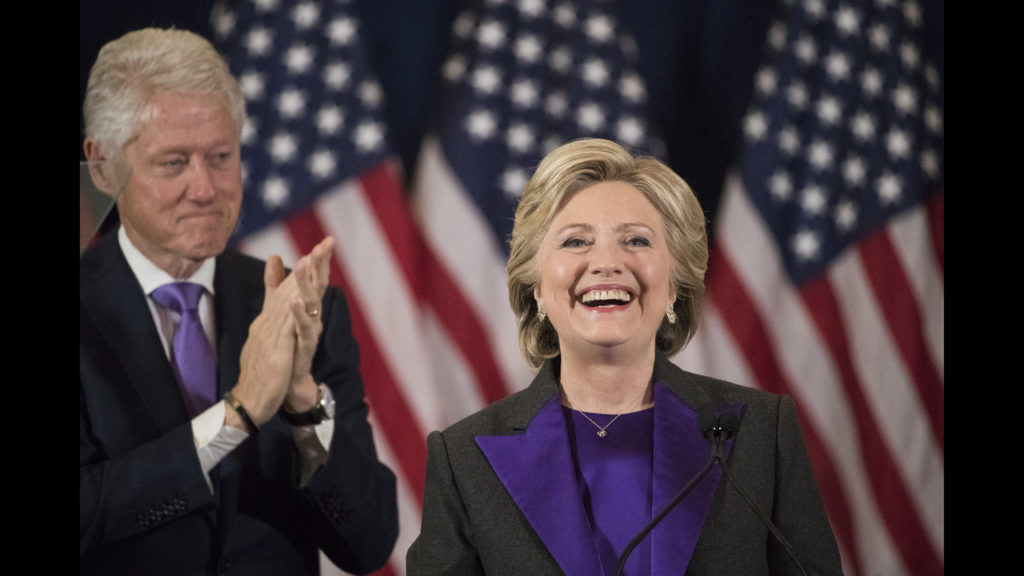
Hillary Clinton‘s aides and supporters are urging dispirited Democrats to channel their frustrations about the election results into political causes — just not into efforts to recount ballots in three battleground states. The former Democratic presidential candidate and her close aides see the recount drive largely as a waste of resources, according to people close to Clinton. The effort is being fueled by Green Party candidate Jill Stein, who’s formed an organization to try to force recounts in Wisconsin, Michigan and Pennsylvania. “Believe me if there was anything I could do to make Hillary Clinton the next president of the United States I would,” said former Pennsylvania Gov. Ed Rendell, a longtime Clinton supporter. “But this is a big waste of time.” Aides say Clinton is focused on moving past her unexpected defeat and has devoted little attention to the recount or thinking about her political future. She’s been spending time with her grandchildren and going for walks near her Westchester home. Sightings of Clinton hiking with her dogs and shopping at a Rhode Island bookstore went viral on social media. “There have been a few times this past week where all I wanted to do was curl up with a good book and our dogs and never leave the house again,” Clinton said in an emotional speech at a gala for the Children’s Defense Fund, her one public appearance since her loss. Former President Bill Clinton, meanwhile, has been poring over the election results, second-guessing decisions by top campaign aides and intensely trying to figure out how his wife lost the white working-class voters who were the base of his electoral coalition, say people familiar with the campaign. Clinton’s team was aware of possible discrepancies soon after the election, telling top donors on a conference call four days after the election that they were looking into potential problems in the three states. But while many campaign staffers believe Russian hacking influenced the outcome of the election, blaming foreign actors for incursions into campaign and Democratic National Committee emails, they’ve found no evidence of the kind of widespread ballot box tampering that would change the results of the race — or even flip a single state. Still, some dejected Clinton supporters have been unwilling to accept the results. Stein has raised $6.5 million for her recount campaign, according to a count posted on her campaign website on Tuesday. That’s nearly double the roughly $3.5 million she raised during her entire presidential bid. Some former Clinton aides have asked frustrated supporters to donate their dollars to what they view as more constructive causes, like state parties or the Democratic candidate in Louisiana, where a Dec. 10 runoff will be the party’s last chance to pick up a Senate seat this year. “I wouldn’t give a dollar to Jill Stein,” said Adam Parkhomenko, a longtime Clinton aide. “Volunteers, supporters and Democrats, they want to pick themselves up and get back out there. The best vehicle to do that is the Louisiana Senate race.” Clinton’s team conducted an exhaustive investigation into the possibility of outside interference in the vote tally, tasking lawyers, data scientists and political analysts to comb over the results. They contacted outside experts, examined the laws governing recounts and double-checked all the vote tallies. The campaign found no “evidence of manipulation,” wrote Marc Elias, the general counsel for Clinton’s campaign, in an online essay. But, he said, Clinton agreed to minimal participation in Stein’s effort, largely to make sure that her interests are represented. They put out a call for volunteers to monitor the proceedings and are relying on local lawyers to handle filings and other legal matters. Clinton is under pressure to participate from her supporters, some of whom have struggled to accept the election results given her lead in the popular vote, which has grown to more than 2.3 million in the weeks after the Nov. 8 election. “Now that a recount is underway, we believe we have an obligation to the more than 64 million Americans who cast ballots for Hillary Clinton to participate in ongoing proceedings to ensure that an accurate vote count will be reported,” Elias wrote. Clinton’s lawyers filed motions with a Wisconsin judge on Tuesday looking to join Stein’s lawsuit demanding that Wisconsin officials recount ballots by hand. The state elections commission will formally began the recount on Thursday. Stein’s organization has also filed for recounts in six of Pennsylvania’s largest counties and says it plans to file a petition Wednesday demanding a Michigan recount. “It’s election law malpractice to not have your lawyers sitting around the table with Jill Stein’s lawyers,” said Adam Ambrogi, elections program director at the bipartisan Democracy Fund. “It is just due diligence.” Republished with permission of The Associated Press.
Joe Biden ‘not interested’ in running for Democratic Party chair
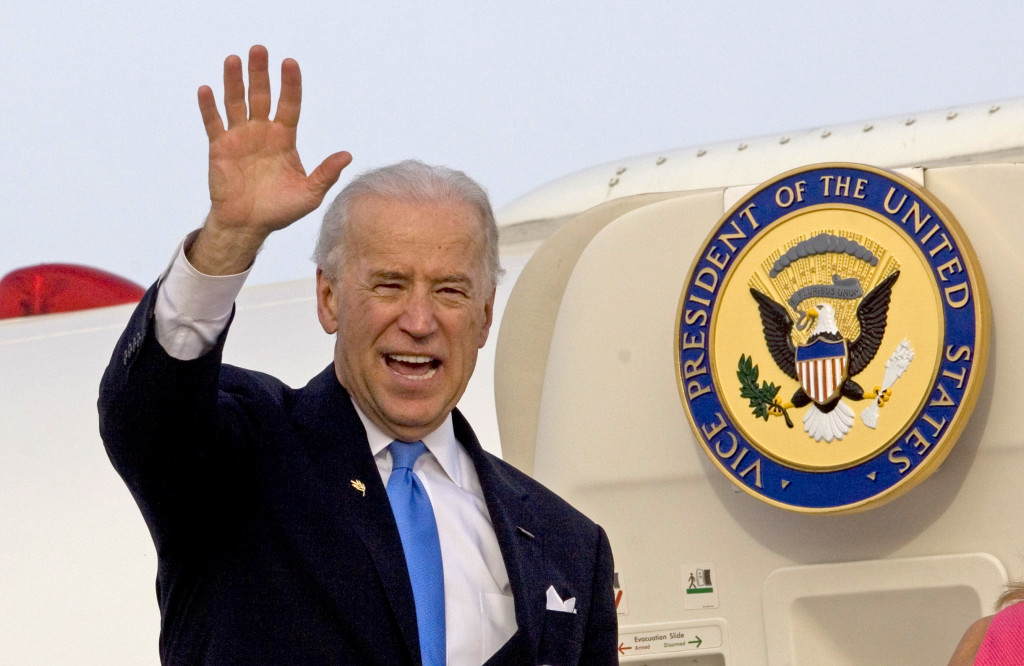
Vice President Joe Biden closed the door Tuesday on the possibility of leading the Democratic Party after leaving the White House next year. Biden’s name has been floated in recent days among Democratic insiders looking for someone with the stature and position to lead the party out its electoral abyss. Democrats urging him this year to run for the Democratic National Committee chairmanship had said his appeal to white, working-class voters might help the party refocus after losing badly among those voters to President-elect Donald Trump. “The vice president is not interested in being DNC chair, but he intends to remain deeply involved in helping shape the direction of the Democratic Party moving forward,” his spokeswoman, Kate Bedingfield, said. Largely leaderless other than outgoing President Barack Obama, the Democratic Party early next year will choose a new national chairman following devastating losses in the 2016 elections. Longtime Chairwoman Debbie Wasserman Schultz stepped down under pressure during the Democratic National Committee. Since then, interim Chairwoman Donna Brazile has led the party, also under pressure after stolen emails showed she’d communicated with Hillary Clinton‘s aides about potential questions to be asked in campaign forums. “Joe Biden is the one person who I think could bring the party together, the progressive wing of the party, the left and center, and start giving a cogent message to those working-class Democrats who abandoned us,” former DNC Chairman Ed Rendell told CNBC earlier Tuesday. Bowing out of the DNC race means Biden will likely cease to have a formal role in the party come January after serving more than four decades in elected office. He’s expected to remain a public voice and has discussed with universities the possibility of setting up a policy center or institute. He’s also said he’ll continue to work on the “moonshot” he launched after his son died to accelerate cancer research. Biden faced even louder calls last year to run for president, but ultimately declined. Republished with permission of the Associated Press.
Ex-Maryland Gov. Martin O’Malley says he won’t seek to lead DNC
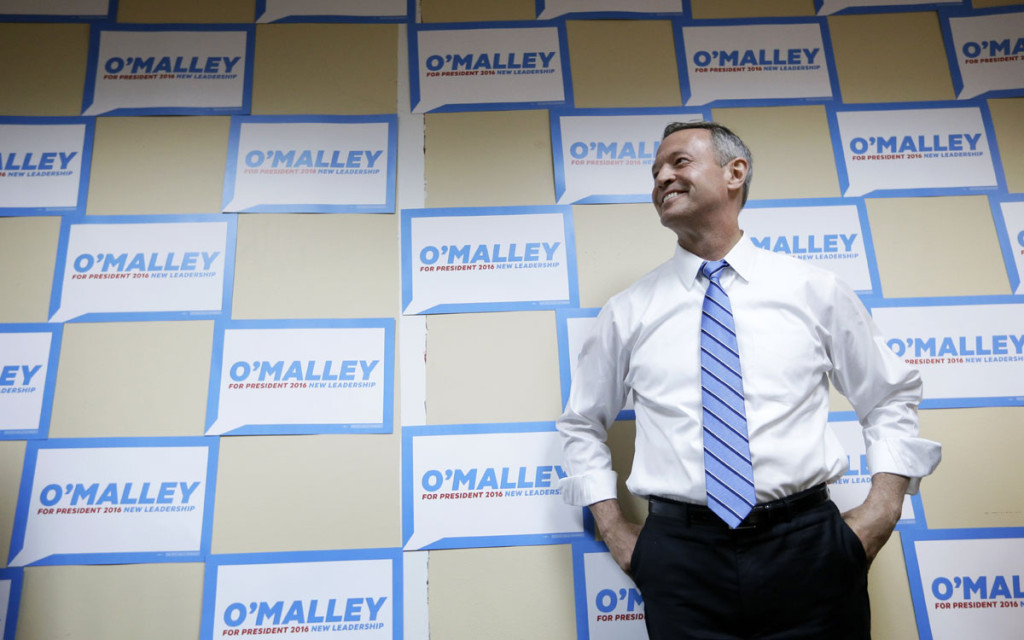
Former Maryland Gov. Martin O’Malley says he won’t seek to become chairman of the Democratic National Committee. O’Malley released a statement Wednesday saying he’s grateful to friends who urged him to consider running, but he won’t seek the chairmanship. He says the committee needs a chairman “who can do the job fully and with total impartiality.” The announcement comes days after O’Malley said he was “taking a hard look” at the position after being approached by “many Democrats who believe our party needs new leadership.” O’Malley ran for president, but he ended his campaign in early February midway through vote-counting in the Iowa caucuses after his bid failed to gain traction against Hillary Clinton and Bernie Sanders. He is a former two-term governor and Baltimore mayor. Republished with permission of the Associated Press.
Still reeling, Democrats begin battling for future
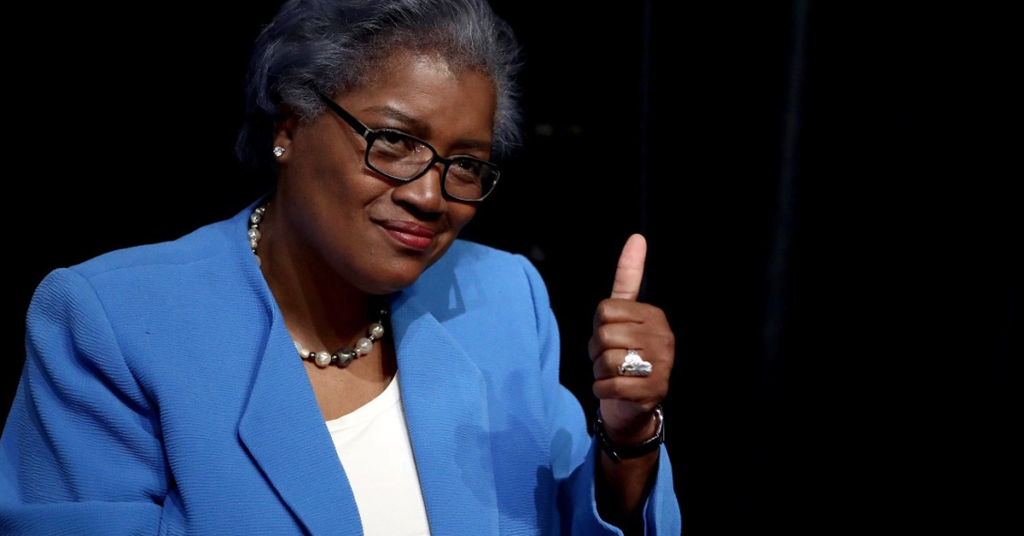
Still reeling from a devastating defeat in last week’s election, Democrats are beginning the process of charting the direction of their party in the Donald Trump era. With Hillary Clinton and her team staying out of the public eye, liberal politicians have begun jockeying for control of the party’s future. While they all backed Clinton, they’re now pushing for a serious shift in the party’s policy positions, financial resources and grassroots organizing to focus more on motivating their base and winning back the white working class voters who went for Trump. “We have to do a lot of rethinking,” said Vermont Sen. Bernie Sanders, who mounted a fierce challenge to Clinton in the primary. “Democrats are focused too much with a liberal elite, which is raising incredible sums of money from wealthy people,” Sanders said on CBS’s “Face the Nation.” The Democratic National Committee, the last bastion of party power in Washington, is quickly emerging as ground zero for the fight. After losing the White House and Congress – and likely the ideological tilt of the Supreme Court – the Democrats’ new chief likely will be one of the party’s most visible faces in politics, making the role a far more influential post than it was during the Obama administration. Already, around a dozen Democrats’ names have been publicly floated to succeed interim chairwoman Donna Brazile, who replaced Florida Rep. Debbie Wasserman Schultz in July after she was caught up in a hacking scandal. Minnesota Rep. Keith Ellison, a prominent progressive and the first Muslim elected to Congress, has emerged as an early contender, backed by much of the party’s liberal wing. He’s also picked up support from several key Democratic leaders, including outgoing Senate Democratic leader Harry Reid and Reid’s likely replacement, New York Sen. Chuck Schumer. Ellison was expected to officially announce his bid on Monday. His supporters argue that Ellison’s faith would send an important signal about the party’s commitment to inclusivity during the Trump administration. “My friend Keith Ellison is a terrific leader and a strong progressive who knows how to get things done. Now is the time for new thinking and a fresh start at the DNC. Now is the time for Keith,” Reid said in a statement on Sunday. In interviews on Sunday talk shows, Ellison pushed back on concerns that he’d be unable to balance party responsibilities with the politics of his day job in Congress – a problem some Democrats believe hampered Wasserman Schultz. “There’re a lot of places that I can serve,” he said, in an interview on NBC’s “Meet the Press.” ”I’m looking for a place to be of use and benefit. And every single Democrat in this country better be thinking the exact same way.” Ellison is far from the only contender for the job. Former Vermont Gov. Howard Dean announced his intention Thursday to reclaim a post he held during the Bush administration. Former Maryland governor Martin O’Malley, DNC National Finance Chairman Henry Muñoz III, and South Carolina Democratic Party Chairman Jaime Harrison have also said they’re considering bids. Others are pushing for a Latino leader, arguing that the growing demographic group is crucial to the party’s future and should be represented at the highest levels of its leadership. Outgoing Labor Secretary Thomas Perez, Arizona Rep. Ruben Gallego and California Rep. Xavier Becerra are said to be weighing a bid. Jason Kander, an Army veteran who lost the Senate race in Missouri to Roy Blunt on Tuesday, is also said to be considering a run. The contest comes at a time of deep unrest for the party – and the country. Anti-Trump protests continued this weekend with thousands of demonstrators turning out in cities across the country. And post-election polls showed a significant minority of Clinton backers question the legitimacy of Trump’s win. Top party leaders are urging Democrats not to despair. “It’s time to brush ourselves off, get back in the arena, and get ready to fight,” President Barack Obama said in an email to supporters inviting them to join a call with him on Monday evening about moving forward. Clinton, meanwhile, has offered little advice to supporters after her concession speech on Wednesday. On a weekend call with top donors, she blamed her loss largely on the FBI’s decision to revive its examination of her email accounts. She made nearly no mention of the other factors driving Trump’s victory, including flaws within her own message, and offered her backers little guidance on moving forward, according to donors on the call. Republished with permission of the Associated Press.
Hacked emails show Hillary Clinton camp discussed ousting Debbie Wasserman Schultz for Jennifer Granholm
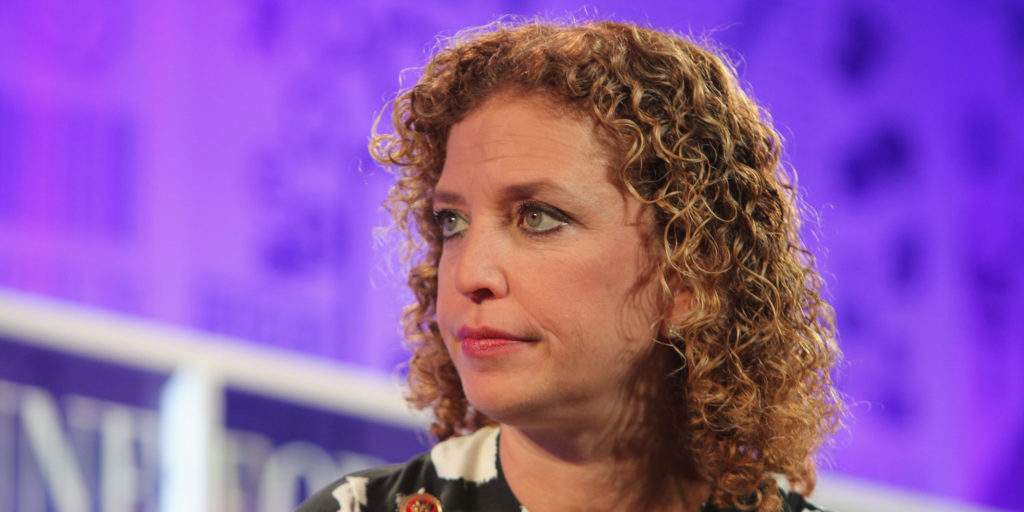
In July, Debbie Wasserman Schultz abruptly resigned as head of the Democratic National Committee, after leaked emails showed party officials conspiring to sabotage the presidential campaign of Vermont Sen. Bernie Sanders. Now, a new email message from the Gmail account of Clinton campaign manager John Podesta — posted by WikiLeaks Tuesday — indicate Hillary Clinton, the candidate campaign officials were considered to be in the tank for, also had serious issues with Wasserman Schultz. Clinton’s staff even discussed ousting her well before her unexpected midsummer exit. On Dec. 17, 2015, Clinton staffer Heather Stone sent out a memo titled “DNC Leadership,” to Podesta, Robby Mook, and Sara Latham. It explained in part the Clinton campaign had encountered challenges in working with Wasserman Schultz, calling for “systemic shifts at the DNC Leadership Level” to facilitate a better working relationship: Though we have reached a working arrangement with them, our dealings with Party leadership have been marked by challenges, often requiring multiple meetings and phone calls to resolve relatively simple matters. We are frequently caught in the middle of poor communication and a difficult relationship between the Chairwoman and the Executive Director. Moreover, leadership at the Committee has been slow to respond to structural challenges within their own operation that could have real impact on our campaign, such as research. Jen O’Malley Dillon has entered into a contract with the DNC as a consultant for the General Election, which addresses some of these challenges and provides a connection for us within the Party. However, this arrangement does not change the need for systemic shifts at the DNC leadership level — to ensure that we have strategic and operational partners within the Committee that can help drive a program and deliver on our General Election imperatives. The memo also said the intention should be to keep Wasserman Schultz as DNC chair up until July’s National Convention. After the convention, however, “we should consider three models for the DNC chairmanship:” Three options discussed would be: — Keep Wasserman Schultz and “work through a chief of staff.” Wasserman Schultz would have been no more than a figurehead in this capacity, the memo states. — Keep Wasserman Schultz in the position, but select someone like former Michigan Gov. Jennifer Granholm as a “General Election Chair.” In that situation, the chief of staff would work with the General Election Chair, while Wasserman Schultz played the role as a chief surrogate. This didn’t seem likely to work, however, as Stone wrote that, “This model has the considerable drawback of creating a two-headed monster with little clarity of who is responsible for different areas of work within the Committee.” — Oust Wasserman Schultz outright for Granholm. “Under this scenario, the convention would represent Congresswoman Wasserman Schultz’s final responsibility to the DNC, and we would use the convention as a clean break between chairs,” wrote Stone. “At the convention, we would honor the Chairwoman’s leadership and service to the Party and introduce the new Chair for the final phase of the campaign.” As it turned out, leaked WikiLeaks emails were released the weekend before the Democratic National Convention in Philadelphia in late July, prompting an outcry among Sanders delegates who always believed Wasserman Schultz was biased for Clinton in her position at the DNC. The uproar was so great, Wasserman Schultz quit the Sunday afternoon before the convention, ultimately replaced by Donna Brazile. Brazile recently left CNN under dubious circumstances following another WikiLeaks release indicating that, while at CNN, she may have passed along a question to Clinton before a debate.
With newfound vigor, Barack Obama works to rebuild Democratic Party
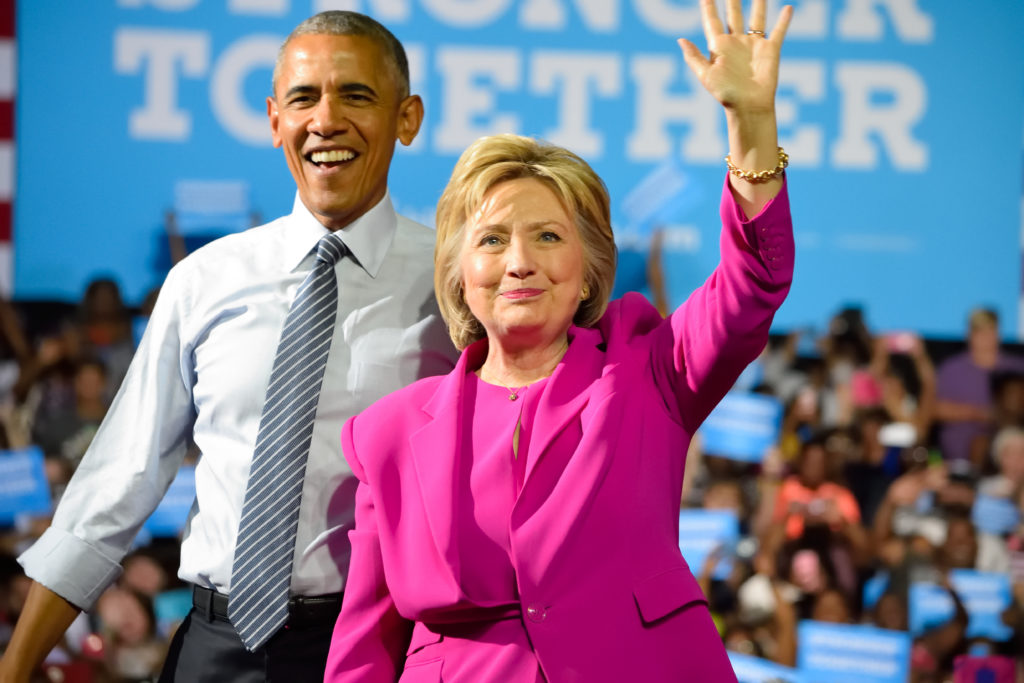
Gone is the old President Barack Obama, who approached campaigning for other Democrats as a chore. The new Obama is throwing himself into rebuilding his party in his final months in the White House and vowing to keep at it once he’s left. With his popularity higher than it’s been in years, Obama has been campaigning for Hillary Clinton with gusto, and White House officials said he’ll be traveling to help the Democrat nearly every day until Election Day, Nov. 8. He was paying his second visit in as many weeks to battleground Florida on Friday after releasing a new ad explicitly arguing a vote for Clinton was a vote for his legacy. “Send a message, by voting for Hillary Clinton,” Obama says in the ad. He’ll return to Florida yet again next week, and go to Ohio and North Carolina to boost Clinton. And in a less-expected development, he’s putting a similar emphasis on the party’s other candidates, cutting nearly two-dozen TV and radio ads for House and Senate candidates and holding a similar number of fundraisers. Obama’s long-term goal: ensuring Democrats don’t get railroaded when congressional maps are redrawn again in 2020 as, they say, they were after the 2010 U.S. census. He’s already committing to spend part of his post-presidency developing the National Democratic Redistricting Committee, chaired by his former attorney general, Eric Holder. So when Obama campaigns for Clinton in Orlando on Friday, Democrats will also be using the visit to boost Democrats in two Orlando-area state House races and one state Senate race that they see as pivotal toward retaking control of Florida’s legislature by 2020. Like most states, Florida gives the power to redraw its maps to state lawmakers. Holder’s new group this year shared detailed maps with the White House outlining areas where Obama could boost Democratic candidates up and down the ballot, said former Rep. Mark Schauer, D-Mich., the group’s senior adviser. David Simas, the White House political director, called the 150 state legislative races where Obama is endorsing candidates this year a “preview of coming attractions.” “It’s clear these races are going to become much, much more important,” Simas said. “As a reaction to that reality, he’s been very clear with us, not only this year, to expect this is something he’s going to take a personal interest in.” It wasn’t always this way. For years, Democrats griped privately that Obama had allowed the party’s political apparatus to fall into disrepair, in part due to his decision after being elected not to fold his own campaign assets into the Democratic National Committee. After all, it was Obama who had brought new voters into the party during his rise to the White House, not the other way around. While he raised money for Democratic campaign groups ahead of every election, Obama generally took a hands-off approach to the strength of the party itself, current and former Democratic officials said. The party fell heavily into debt in 2012 and it took years to pay off. Obama’s bid to restore balance in redistricting speaks to the biggest obstacle of his presidency, and one he was never able to fully overcome: a Congress occupied largely by politicians from districts that lean so heavily Republican or Democrat that they have little incentive to compromise with the other side. Republished with permission of the Associated Press.
Steven Kurlander: 2016 election legacy — wishing it would end already

If you ask most Americans, they will tell you they can’t wait for this year’s presidential election to be over. The 2016 presidential campaign has been one with no decorum or class — a very dirty, vicious political race. It has exasperated an already overblown antipathy toward American politics and those who govern us. Americans have a choice of Donald Trump, who has based his voter appeal on callous and reckless rhetoric designed to exploit the average voter’s frustrations, or Hillary Clinton, a 1990s leftover who, along with the Democratic National Committee, really did rig the primary results against a more popular, and more electable Bernie Sanders. It’s been a demoralizing experience for an American electorate angry they weren’t really given a decent selection of presidential candidates to choose from, a “gotcha” race highlighted by three terrible debates where the candidates got really nasty and personal about each other’s character and fitness to be president. But you can’t superficially critique this race simply as a very nasty race between two very angry, unpopular candidates. Much like our mean and nasty American culture itself has evolved as a result of unfettered freedoms afforded by social media, we are correspondingly enduring an unsophisticated and vicious brand of free-for-all reality politics governed less and less by the parties, the candidates and even the Super PACs, too. The press is much to blame. With Trump making it a point from the start to confront the media as biased — both liberal and conservative outlets alike — Americans have been subjected to continuous vicious anti-Trump headlines and news framed to put him in a very bad light. As the election draws to a close, many outlets are already absurdly declaring a landslide victory for Clinton — so the election news and polling by these organizations surely can’t be trusted to be accurate, to say the least. Unlike previous elections, the Fourth Estate has shown no pretext of impartiality in their hostility, contempt, and bias toward him and their reporting and the analysis of the race in 2016. In turn, the rogue WikiLeaks has established itself as the anti-Clinton premier source by using illegally obtained and hacked information to feed biased information to Americans. So Americans are frustrated that they can’t trust what news, the context of such information, and polling information they are getting about the election from this biased media. Social media outlets like Facebook and Twitter have also been horrible sites of contention and rudeness, where patrons of both sides, and Donald Trump too, have exposed the electorate to uncontrolled hostility and venom on a 24/7 basis. The rise of Donald Trump as the GOP presidential candidate and the strong showing (and real victory) of Bernie Sanders also highlighted the impotency of the Democratic and Republican parties. Even if Hillary wins, this election could be the beginning of the end of the two-party system in this country in many ways. That’s not only discouraging to Americans, but scary too. Bottom line: This election has unfortunately set a very low common denominator for the conduct of future presidential races and does not portend well for the future of our nation. But instead of just wishing for the election to take place already, maybe there should be something for Americans to look forward to after the election. President Obama should immediately declare Nov. 9 as a “National Reconciliation Day” where all Americans can declare their love for their country and for each other. After watching Donald and Hillary brutalize each other these past few months, social media negatively run amok, and the press, in turn, try to destroy Trump and the Russians through WikiLeaks savage Clinton, a national group hug is certainly in order! ___ Steven Kurlander blogs at Kurly’s Kommentary and writes for FloridaPolitics.com. He is an attorney and communications specialist living in Monticello, New York. He can be reached at kurlyskommentary@gmail.com.
FBI warns of possible state election-system hacks
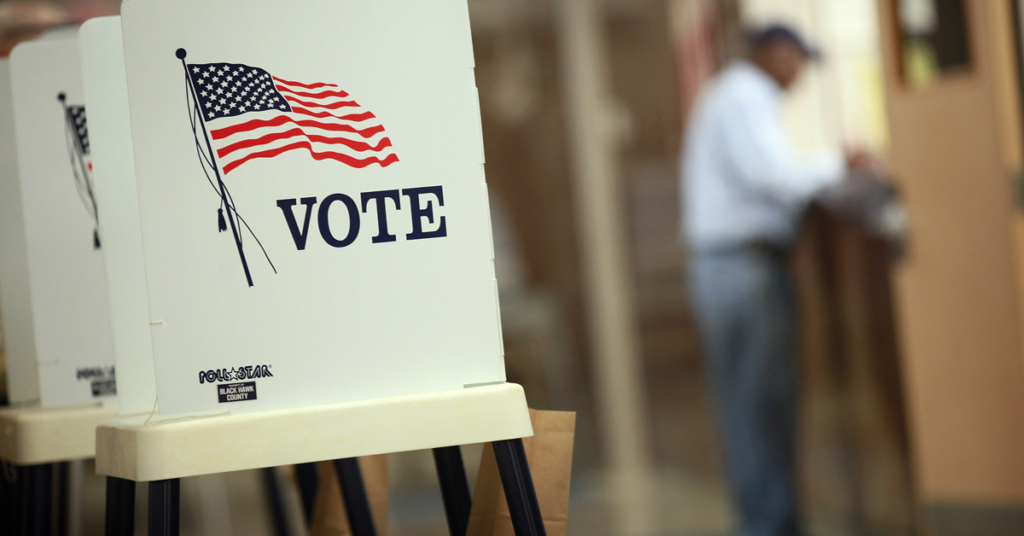
The FBI is warning state officials to boost their election security in light of evidence that hackers targeted related data systems in two states. In a confidential “flash” alert from its cyber division, first reported by Yahoo News and posted online by others, the FBI said it’s investigating the pair of incidents and advised states to scan their systems for specific signs of hacking. The FBI said Monday that it doesn’t comment on specific alerts, but added that it routinely sends out advisories to private industry about signs of cyber threats that it comes across in its investigations. The FBI didn’t name the states that were targeted, but it described a “compromise” of one elections board website and “attempted intrusion activities” in another state’s system. State election websites in Illinois and Arizona experienced hack-related shutdowns earlier this summer. In both cases, the parts of the websites affected involved online voter registration. The FBI’s Aug. 18 warning also came just days after Homeland Security Secretary Jeh Johnson hosted a call with secretaries of state and other state election officials to talk about cybersecurity and election infrastructure. In that call, Johnson said that while DHS isn’t aware of any particular cyber threat against election-related computers, it’s “critically important” to make sure that election systems are secure amid a rapidly changing threat landscape, according to a DHS summary of the call. In the Arizona case, the FBI notified state officials in June about what the agency called a “critical threat” to the state’s voter registration system, which shut down on June 28, according to Matt Roberts, a spokesman for the secretary of state’s office. A county worker had downloaded a piece of malware that exposed their access credential and password, which then wound up online, Roberts said. A forensic examination of the state database found no evidence of unauthorized access. Roberts said he’s not positive the new FBI’s “flash alert” refers to Arizona, but said it appears likely. The system came back online on July 7 with new security features. Federal officials are becoming increasingly concerned about the possibility that hackers, particularly those working for Russia or another country, could breach U.S. elections systems and wreak havoc on the November presidential election. Some experts, along with Democrat Hillary Clinton‘s campaign, believe that Russia was behind the embarrassing email hack of the Democratic National Committee right before its national convention last month. The hacked emails showed an apparent lack of neutrality in the primary race between Clinton and Bernie Sanders, with some party officials disparaging Sanders. Republished with permission of The Associated Press.

